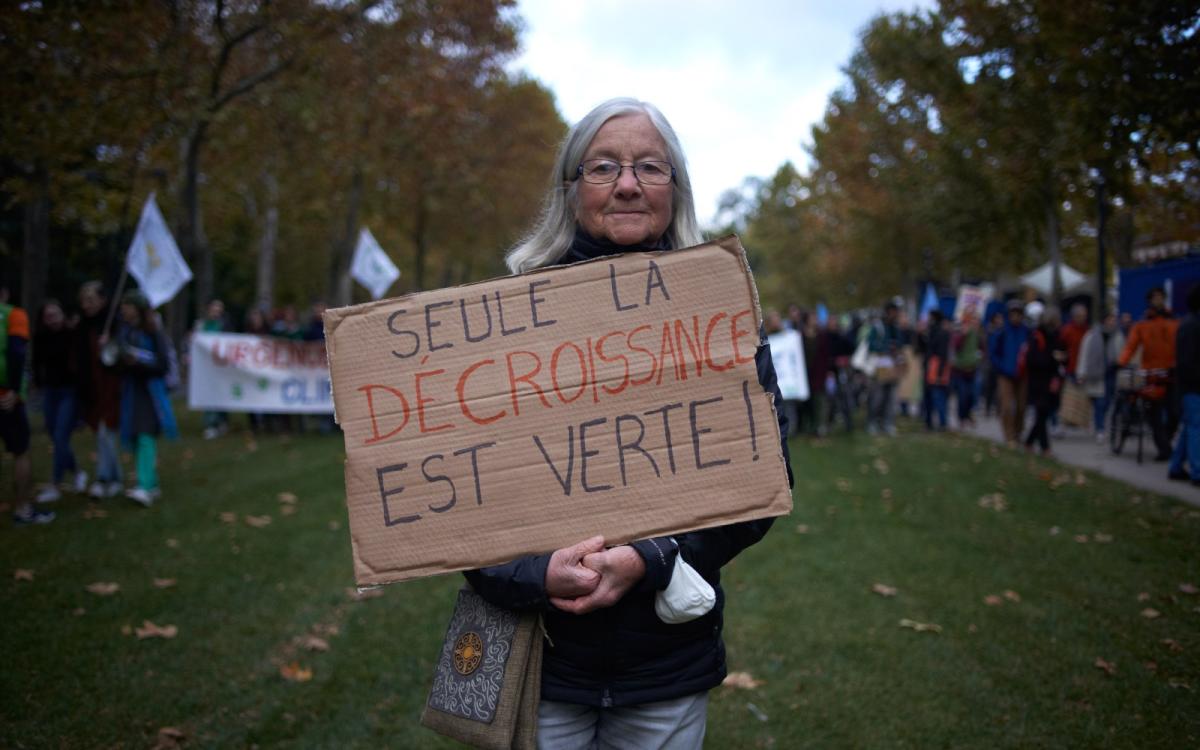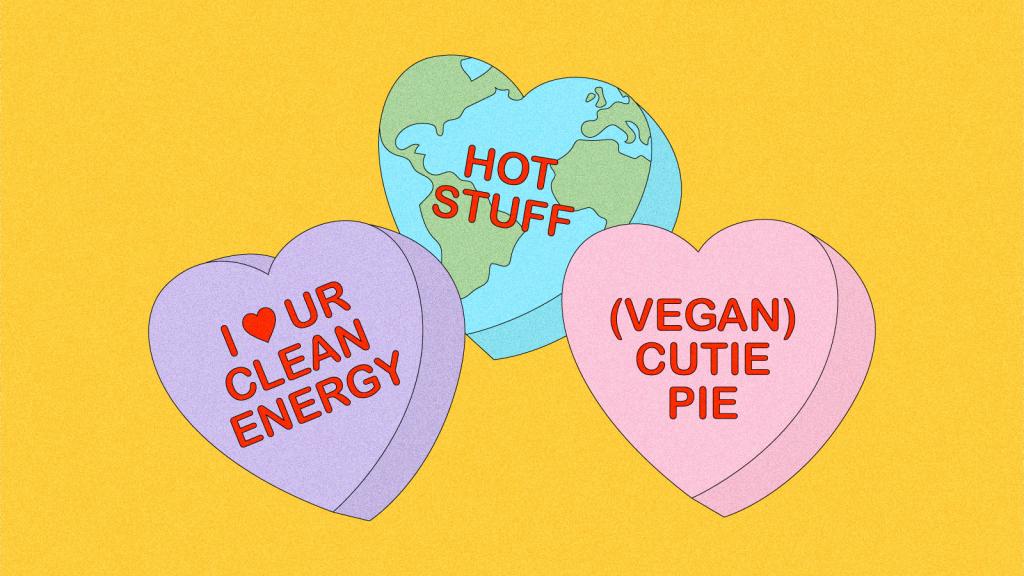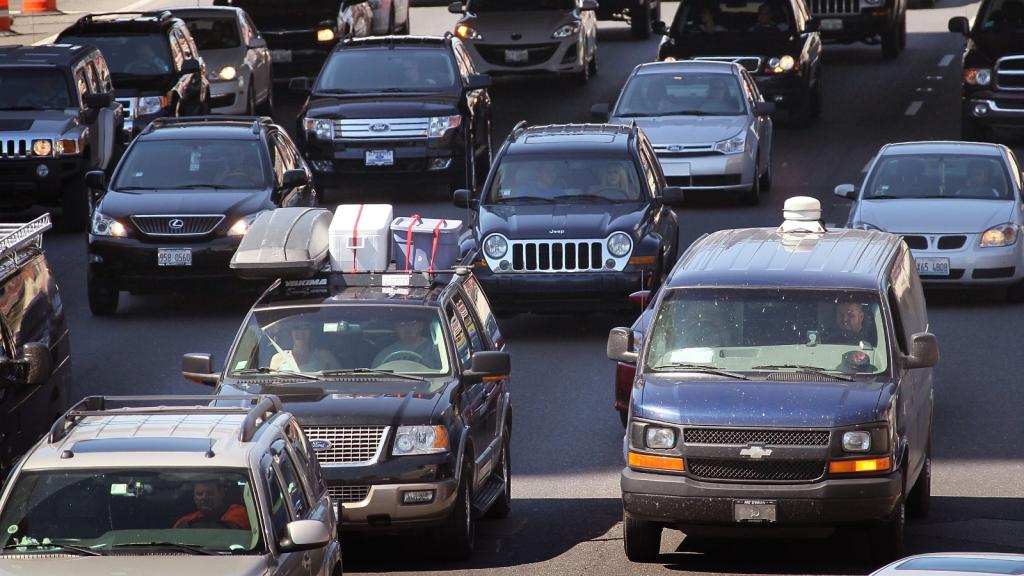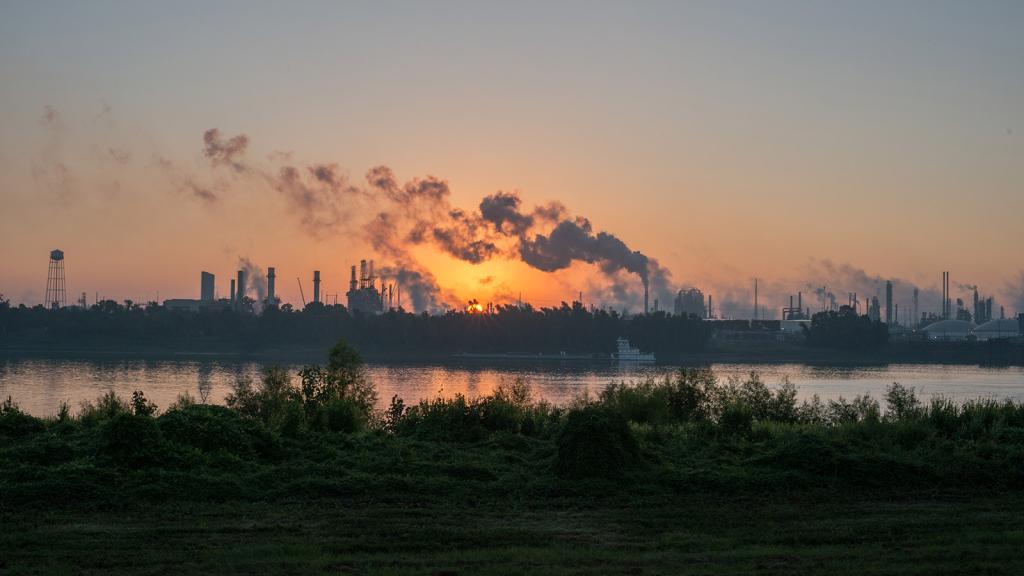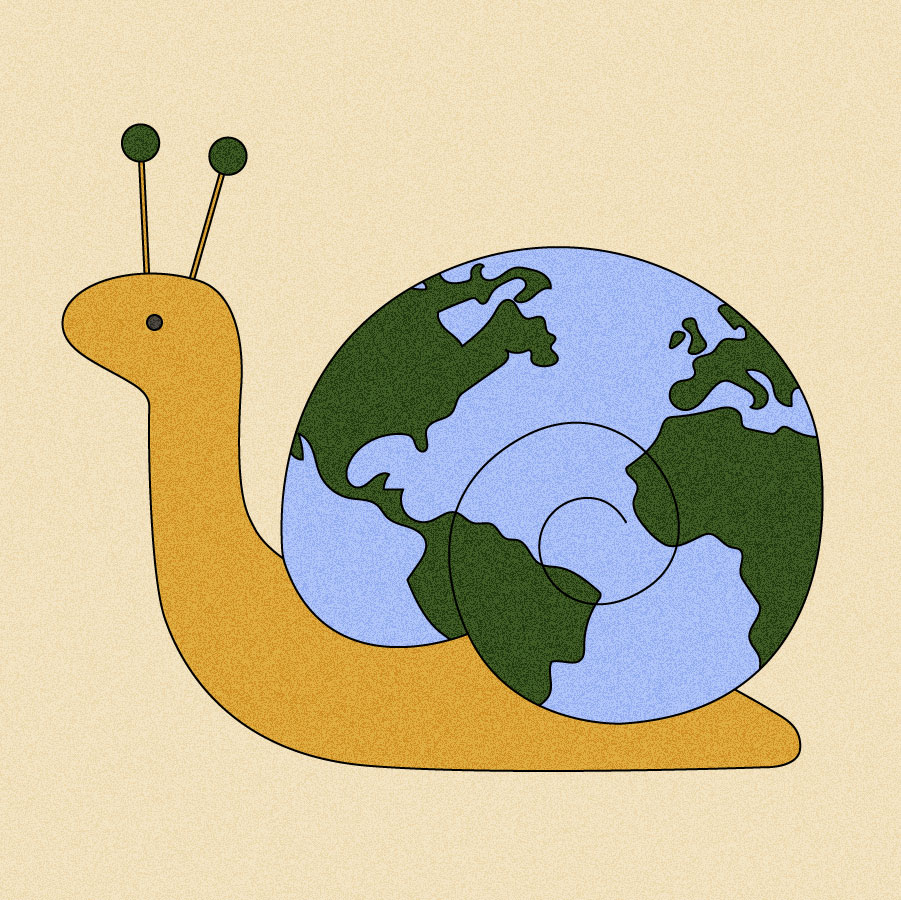
The vision
It’s a five-minute bike ride to the train station. On brisk mornings like this, I wear gloves and pack a warm coffee for the commute. My work buddy Lucy gets on two stops down, always with a pair of scones, wheeling her bike next to mine in the locker downstairs before joining me in the sunny coach section. Half an hour later, we unload the bikes and race each other along the greenway to our office. Twice a week, this; twice a week, we co-work from a cafe in the suburbs. The rest of the week is ours to enjoy.
— a drabble from Looking Forward reader Betsy Ruckman
The spotlight
If you like the idea of a perpetual three-day weekend, you might be one of a growing cadre that supports the concept of degrowth: a school of thought aimed at shrinking economies and moving away from GDP growth as a metric of success, while instead emphasizing universal basic services and social well-being. The idea is gaining followers, especially in Europe and especially among young people. But it’s not just a fringe theory. A Beyond Growth conference hosted by the European Parliament last May saw 7,000 attendees, including the president of the European Commission.
Akielly Hu, Grist’s news and politics fellow, discussed the growing popularity of degrowth with Kohei Saito — a Marxist author whose 2020 degrowth manifesto quickly turned into a bestseller in Japan and beyond. (The English translation, called Slow Down, was just released last month.)
“I think one of the reasons why people like the idea so much is because, in a capitalist economy, people work a lot,” Hu said. “And one of the central ideas of degrowth is shorter working hours.” We covered this in a previous newsletter about the four-day workweek — one of the first degrowth-esque policies that we’re beginning to see implemented in some places. (The idea of a future where work is deemphasized also inspired Betsy Ruckman to submit the drabble above, which shows two colleagues enjoying a four-day week and basic services like accessible public transport.)
Hu was also inspired by Looking Forward’s drabbles in writing the lede of her piece, which paints an image of a degrowth future:
Imagine a world where you work three or four days a week. In your free time, you play sports, spend time with loved ones, garden, and engage with local politics. Overnight shipping, advertising, and private jets no longer exist, but health care, education, and clean electricity are free and available to all.
It’s a vision that’s pretty hard to argue with — especially, as Hu pointed out, the idea of working less and having more time for activities that are about joy, not money. But there’s another aspect of degrowth that lends itself to a vision of a clean, green, just future: It’s inherently about producing and consuming less, and that means less carbon.
“We’re hurtling toward these major climate deadlines,” Hu said. “And I think there’s this deep sense of disconnect between what we say we’re going to do about climate change and what’s actually happening. And one of the things that’s actually happening is that there are all these blatant, unnecessary, and unhelpful ways that massive amounts of carbon are still being consumed.” She offers private jets as a common example highlighted by degrowth advocates. Taking a private plane (ahem, Taylor Swift) creates an absurd amount of emissions proportionate to the number of people it benefits. “It’s a form of consumption that contributes to economic growth, but it’s not accessible to 99.99 percent of people,” Hu said. “So why are we spending so much of the remaining carbon budget on private jets?”
Even though the theoretical future of degrowth may sound appealing, critics still say it’s a political nonstarter. “If you tell people to shrink economies, it’s kind of focusing on scarcity. And that’s a little bit unpalatable in a world where we’re already facing so much scarcity,” Hu said. But, she added, the original goal of the degrowth movement was to be a “shit disturber” — to provoke thought, and cause people to question the way economic growth is prioritized in our society and embedded in our policies.
Saito admits the idea of widespread degrowth is “in some sense utopian.” But, he adds, “believing that capitalism will prosper in the decades to come is utopian, too.”
We’ve excerpted Hu’s Q&A with Saito below. Find the full piece on the Grist site.
— Claire Elise Thompson
![]()
Q. Why do you think we’re seeing a growing interest in critiquing capitalism, and degrowth in general?
A. Looking at previous decades, neoliberal reforms really destabilized our society all over the world. And there are a lot of discussions about how we can solve the climate crisis, and how we can solve economic inequality. But these measures are not properly working, and the climate crisis has been accelerating. People are suffering from precarious jobs, low wages, and a lot of competition. And people are indeed unhappy.
Degrowth and the idea of post-capitalism are of course in some sense utopian at the moment. But at the same time, people who are really looking for an alternative — people who really care about the crisis — can’t find the answer within the existing framework. I don’t claim that my answer is definitive and comprehensive, but it resonates with the general atmosphere of dissatisfaction and discontent, especially among younger generations.

Q. I want to dig into your critiques of capitalism as laid out in Slow Down. Could you talk about why you think capitalism drives global inequality and climate change?
A. Karl Marx famously demonstrated that capitalism has the tendency to enlarge economic inequality because capitalism exploits workers so that the capital is accumulated in the hands of the few. And Marx also said that in such a system where people are exploited, nature is also exploited. We didn’t really recognize this tendency for many years because affluent countries, like the U.S. and Japan, and the E.U., were able to externalize a lot of costs to somewhere else.
That means that our affluent lives are often supported by cheap products and cheap resources based on the exploitation of nature and humans in the Global South.
Capitalism has subsumed the entire planet now because of globalization. That means we externalized all the costs. Now, we don’t have any more space to externalize because China is expanding, Brazil is expanding, India is expanding: Everyone tries to be a capitalist and it doesn’t work anymore. We are encountering the global ecological crisis, the pandemic, the climate crisis, competition for resources — and these things are closely related to capitalism and the tendency to constantly expand.
Q. Many climate policies today, like Green New Deal proposals, are focused on expanding renewable energy and clean technology, while creating new jobs and continuing to grow the economy. In your view, why are these measures insufficient for tackling the climate crisis?
A. First of all, I’m not against technology. We need renewable energy. We need electric vehicles and so on. I’m for inventing new technologies and investing more in developing cheaper, sustainable energy. I’m not an advocate of “going back to nature.”
The problem is that when we try to grow, we sell more products and bigger products. The most representative case is SUVs. Even if we transition to electric vehicles, if we keep building bigger cars, we still use a lot of energy and resources that come mainly from the Global South. So there will be a continuation of the robbing of land and resources, exploitation of mining workers and the destruction of Indigenous life, deforestation, and so on.
I think what’s necessary is: Invest in those green technologies. But at the same time, we should start talking about the need to reduce the number of cars, for example, or industrial meat consumption, or frequency of flying. Maybe we should ban private jets. Maybe we should ban domestic short-distance flights because we can take trains. These things must be also prioritized.
The problem with the existing mainstream green capitalism discourse is they never talk about reducing our excessive consumption and production, because that’s not something capitalism can accept. For everyone to live a decent life on this planet, the Global North needs to give up what is unnecessary. That’s not something capitalism can do.
Q. You write in the book about how a degrowth transition doesn’t have to happen all at once, and that in fact, it’s already happening. Could you talk about a few examples you see today that represent a step toward degrowth?
A. France has banned short-distance domestic flights — that is one important step. Some European societies are now experimenting with shorter working hours, like a four-day workweek. Free education and free medical care are other examples. We should expand these to free internet, which is something [former U.K. Labour Party leader] Jeremy Corbyn put forward during his electoral campaign a couple years ago.
We should also introduce maximum limits on annual incomes, worker cooperatives, and social ownership of companies, including water companies and electricity companies. These are some of the basic countermeasures that we can introduce within capitalism.
More exposure
- Read: a previous Looking Forward about four-day workweeks
- Read: a more in-depth description of what degrowth is, and how it would work in practice (Nature)
- Watch: an overview of degrowth principles and the history of the movement (CNBC)
- Read: one economist’s argument for why social inequality should be at the core of how we address climate change, including banning private jets (The Guardian)
- Check out: the International Degrowth Network, which was officially launched late last summer
A parting shot
A woman poses with a sign, in French, reading “Only degrowth is green,” as part of a climate protest in Toulouse in 2021.
